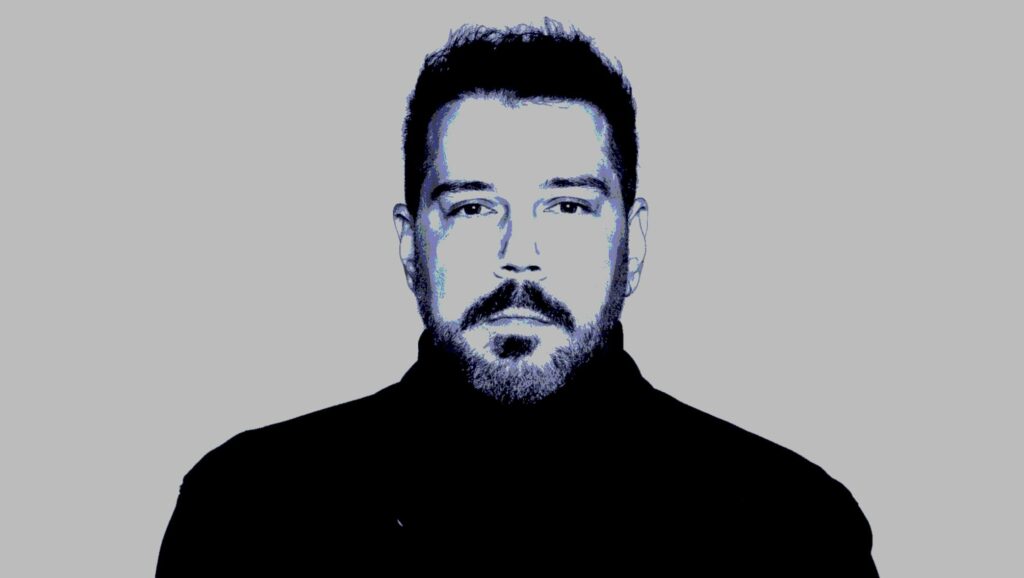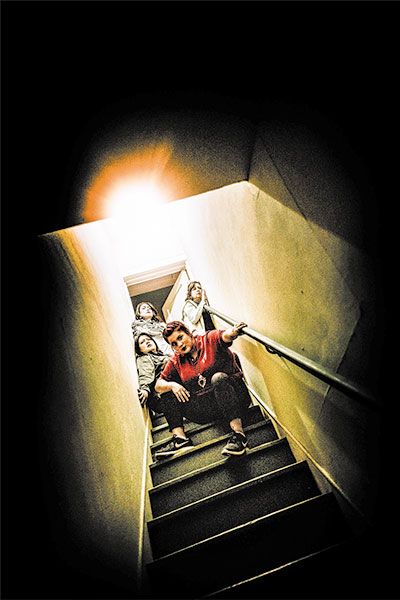
The playwright John J. Caswell Jr. (courtesy photo)
John J. Caswell’s play Man Cave opened last weekend at Kitchen Dog Theater. The show is a regional premiere and is only the second time it has been produced. His story revolves around four Latinas who take over the basement space of a Republican congressman that one of them works for. There they congregate as a safe space before supernatural elements enter the picture. Read our review here.
Before the run opened at the Trinity River Arts Center, Caswell talked about the show via email about its origins and his celebration of Latin women.
Dallas Voice: Congratulations on this Dallas run of your show. Could you talk about the impetus for your story?
Caswell: I wanted to honor the women in my life who were kept from their full potential by circumstance, specifically circumstance created and exacerbated by patriarchy, capitalism, racism and xenophobia. And because the world is experienced often as horror by those less fortunate, I decided to literalize that in structure and form and make it scary.
 Man Cave certainly has a scare factor. Upon reading the premise, my initial reaction was that it was a comedy, that almost seems an unfair description. What feelings were you trying to evoke with Man Cave?
Man Cave certainly has a scare factor. Upon reading the premise, my initial reaction was that it was a comedy, that almost seems an unfair description. What feelings were you trying to evoke with Man Cave?
No, it’s funny, too! There is a lot of humor and laughter in the play. It isn’t a comedy per se, but levity and lightness are always a big part of my work. I know it’s cliche to say, but my goal here really is to make you laugh, cry and scream all in one night.
The premise sounds quite subversive. What was your bigger picture here?
Often when Latina service workers are portrayed on stage, they’re not only servicing their employers, but are also often in service of a plot and a story that is not their own. In this case, I wanted these four women to be the only voices in the room, dealing with nothing but their own immediate wants and needs.
Typically when you gather Latinx folks on stage, their designated purpose is often relegated to a spoon-feeding of their culture to predominantly white, American theatre audiences looking for an asuagement of guilt. That’s not happening in Man Cave. What is subversive about the play is its refusal to continue propping up a false monolith of Latinidad and to insist on a Latinx theatre that is no longer servicing a white gaze, but instead ignores it.
This is the second time for this play to be produced. Has it changed at all from its world premiere to today?
It has the same spirit, but it is certainly leaner and meaner. I was glad to do some additional work on the script between NYC and Dallas. Time clarifies. And I anticipate doing a little more work before the third production that goes into rehearsal later this year. Hopefully then I’ll be ready to move on from it!
As a queer Latin playwright, what’s important for you in the stories you create?
It is most important to me that I create queer and Latinx stories on stage that are treated with the same inevitability and cultural fluency as a straight white play. It’s problematic that our work is often considered niche or uninteresting when it doesn’t stew in its own exotica. These women aren’t going to talk to you about making tamales. I’d like us to start going back to Mexican restaurants for that.
Man Cave runs through March 5. For tickets and more information, click here.
– Rich Lopez











